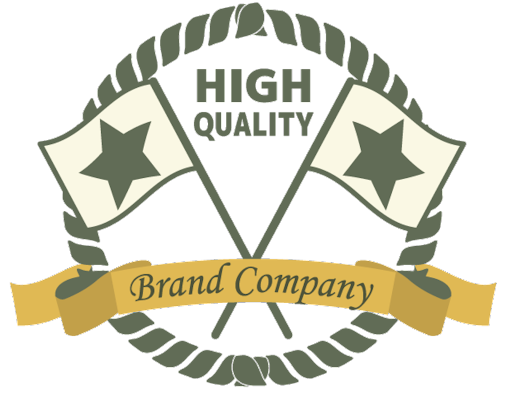Edge computing is reshaping how data is processed, moving computation closer to where data is generated. This shift enables faster decision-making, reduced latency, and efficient use of bandwidth, particularly in industries like manufacturing, healthcare, and smart cities. Visualising this data in real time is critical for actionable insights, and JavaScript charts offer a powerful way to achieve this. By rendering dynamic, interactive visualisations directly in the browser, these tools help businesses monitor and respond to edge computing metrics instantly. This article explores how JavaScript-based charting solutions, particularly those integrated with React, enable real-time mapping of edge computing insights, highlighting practical applications, technical considerations, and future trends.
A developer from SciChart, a provider of high-performance charting libraries, shares their perspective: “Real-time data visualisation is essential for edge computing applications, where milliseconds matter. Our charting solutions are designed to handle millions of data points with sub-second updates, making them ideal for rendering edge computing metrics in dynamic environments. This capability ensures developers can build responsive dashboards that reflect live system performance without compromising on speed or accuracy.”
The Role of Real-Time Visualisation in Edge Computing
Edge computing processes data at or near its source, such as IoT devices, sensors, or local servers, rather than relying on centralised cloud infrastructure. This approach is vital for applications requiring immediate responses, like autonomous vehicles or industrial automation. However, the volume and velocity of data generated at the edge pose challenges for monitoring and analysis. Real-time visualisation addresses this by transforming raw data into intuitive graphs, heatmaps, and dashboards that operators can interpret instantly.
JavaScript charts are particularly suited for this task due to their flexibility and browser-based rendering. Libraries like Chart.js, Recharts, and SciChart leverage HTML5 Canvas or SVG to create responsive visualisations that update seamlessly as new data arrives. For edge computing, this means metrics like latency, throughput, or device health can be plotted in real time, enabling operators to detect anomalies or optimise performance on the fly. The ability to integrate these charts into web applications built with frameworks like React further enhances their accessibility, allowing stakeholders to access insights from any device with a browser.
Why React and JavaScript Charts Are a Perfect Match
React’s component-based architecture makes it an ideal framework for building dynamic, data-driven interfaces. When paired with JavaScript charting libraries, React enables developers to create modular, reusable chart components that can handle real-time data streams. Libraries like Recharts and react-chartjs-2 are designed specifically for React, offering pre-built components that simplify the integration of charts into applications. These libraries use React’s virtual DOM to efficiently update only the parts of a chart that change, ensuring smooth performance even with frequent data updates.
For edge computing applications, this combination is powerful. Consider a smart factory where sensors monitor machinery performance. A React-based dashboard could use Recharts to display line charts tracking vibration or temperature data, updating every second as new readings arrive from edge devices. The declarative nature of React allows developers to define how data maps to chart properties, such as axes or series, without manually manipulating the DOM. This abstraction reduces development time and ensures charts remain responsive, even on resource-constrained devices like tablets used on the factory floor.
SciChart’s JavaScript chart features stand out in this context, offering WebGL-powered rendering for high-performance applications. Unlike SVG-based libraries, which can slow down with large datasets, WebGL leverages GPU acceleration to plot millions of data points in real time. This is critical for edge computing scenarios where high-frequency data, such as network packet rates or sensor readings, must be visualised without lag.
Practical Applications in Edge Computing
The ability to map edge computing insights in real time has transformative applications across industries. In healthcare, edge devices like wearable monitors generate continuous streams of patient data, such as heart rate or glucose levels. JavaScript charts can visualise this data in real time, enabling clinicians to spot trends or anomalies instantly. For example, a React application using Chart.js could display a patient’s heart rate as a line chart, with thresholds for alerts if readings exceed safe limits. By processing data at the edge, the system reduces latency and ensures privacy by minimising data sent to the cloud.
In smart cities, edge computing powers traffic management systems that rely on real-time data from cameras and sensors. Visualising traffic flow or congestion patterns through heatmaps or bar charts helps city planners optimise signal timings or reroute vehicles. Libraries like ApexCharts, which support dynamic updates and responsive design, are well-suited for such applications, allowing dashboards to adapt to different screen sizes used by city officials.
Manufacturing is another key area. Edge computing enables predictive maintenance by analysing sensor data from machinery to detect potential failures. A React-based dashboard could render scatter plots of vibration data, updating in real time to highlight deviations from normal patterns. This allows engineers to schedule maintenance before breakdowns occur, reducing downtime and costs. The high performance of WebGL-based charts ensures that even complex datasets, such as those from multiple sensors, are visualised smoothly.
Technical Considerations for Real-Time Charting
Building real-time charting solutions for edge computing requires careful consideration of performance, data handling, and scalability. One key challenge is managing the high volume of data generated by edge devices. To prevent performance bottlenecks, developers must optimise data pipelines and chart rendering. Libraries like Chart.js offer decimation plugins that reduce the number of data points plotted without sacrificing visual fidelity, which is useful for handling high-frequency sensor data.
Another consideration is the choice of rendering technology. SVG-based libraries, such as Recharts, are ideal for small to medium datasets and offer crisp visuals on high-resolution displays. However, for large datasets or high-frequency updates, Canvas or WebGL-based libraries like SciChart or LightningChart JS are preferable due to their superior performance. Developers must balance visual quality with rendering speed, especially for edge devices with limited processing power.
Data streaming protocols also play a role. WebSockets or Server-Sent Events (SSE) are commonly used to deliver real-time data to web applications. For example, a React component could subscribe to a WebSocket feed from an edge server, updating a chart’s dataset whenever new data arrives. Libraries like react-chartjs-2 support dynamic data binding, allowing developers to update charts without re-rendering the entire component. This approach ensures low latency and efficient resource use, critical for edge computing applications.
Scalability is another factor. As edge deployments grow, dashboards may need to visualise data from thousands of devices. Libraries like ECharts, which support server-side rendering, can offload some processing to the edge server, reducing the client’s workload. Additionally, modular libraries like Visx allow developers to build custom visualisations tailored to specific use cases, offering flexibility for complex edge computing scenarios.
Challenges and Limitations
Despite their advantages, real-time JavaScript charts face challenges in edge computing contexts. One issue is browser compatibility. While modern browsers support HTML5 Canvas and WebGL, older devices or embedded systems may struggle with complex visualisations. Developers must test charts across target devices to ensure consistent performance, potentially falling back to simpler SVG-based rendering for legacy systems.
Another challenge is data security. Edge computing often involves sensitive data, such as patient health records or proprietary manufacturing metrics. Visualisations must be designed to avoid exposing raw data in the browser’s developer tools. Techniques like data aggregation or anonymisation at the edge can mitigate this risk, ensuring only processed metrics are sent to the client for charting.
Resource constraints on edge devices also pose a challenge. Running a React application with real-time charts on a low-power device, such as a Raspberry Pi, requires lightweight libraries and optimised code. Libraries like Tremor, which prioritise simplicity, can be effective for such use cases, though they may lack the advanced features of tools.
Finally, the learning curve for some charting libraries can be steep. D3.js, while powerful, requires significant expertise to create custom visualisations from scratch. React developers may prefer higher-level libraries like Recharts or Nivo, which offer pre-built components and simpler APIs, to accelerate development without sacrificing functionality.
Future Trends in Edge Computing Visualisation
The convergence of edge computing and real-time visualisation is set to evolve rapidly. One emerging trend is the integration of artificial intelligence (AI) at the edge. AI models running on edge devices can generate insights, such as predictive maintenance alerts, which JavaScript charts can visualise in real time. For example, a React dashboard could use Nivo to display a heatmap of predicted failure risks across a factory’s machinery, updated as the AI model processes new data.
Another trend is the rise of 3D visualisations. Some libraries support 3D charts, such as surface meshes or point clouds, which can represent complex edge computing metrics, like spatial sensor data in smart buildings. As WebGL adoption grows, 3D charts will become more common in dashboards, offering immersive ways to explore data.
Progressive web apps (PWAs) are also gaining traction for edge computing visualisation. PWAs combine the accessibility of web applications with offline capabilities, making them ideal for remote edge environments, such as oil rigs or rural healthcare clinics. React-based PWAs using libraries like ApexCharts can deliver responsive charts that work seamlessly online or offline, ensuring uninterrupted access to insights.
Finally, the adoption of TypeScript in React development is influencing charting libraries. Libraries like SciChart and ECharts offer TypeScript support, providing type safety and better tooling for large-scale edge computing projects. This trend will improve code maintainability and reduce errors in complex visualisation applications.
Conclusion
Real-time visualisation is a cornerstone of edge computing, enabling businesses to harness data from distributed devices for immediate decision-making. JavaScript charts, particularly when integrated with React, provide a flexible and performant solution for mapping these insights in dynamic, browser-based dashboards. From healthcare to smart cities, the applications are vast, supported by a rich ecosystem of charting libraries like Recharts, SciChart, and Chart.js. While challenges like performance, security, and device constraints exist, ongoing advancements in rendering technologies, AI integration, and web standards are addressing these issues. As edge computing continues to grow, the role of JavaScript charts in delivering real-time, actionable insights will only become more critical, empowering industries to operate smarter and faster.





![Best Samsung 5G Phones Under ₹30,000 in India – Latest Models & Reviews[May, 2025] Samsung A35 5g](https://appeio.com/wp-content/uploads/2025/02/Samsung-smartphones-under-30k-356x220.webp)
![Top 4 Best Samsung Phones under 40000 [April,2025] Top 4 Best Samsung Phones under 40000](https://appeio.com/wp-content/uploads/2021/05/Top-4-Best-Samsung-Phones-under-40000.jpg)





